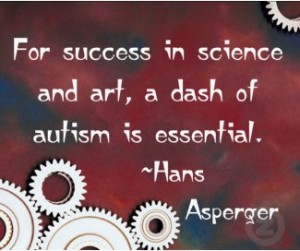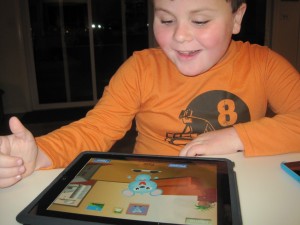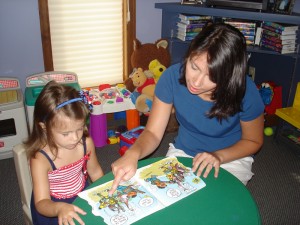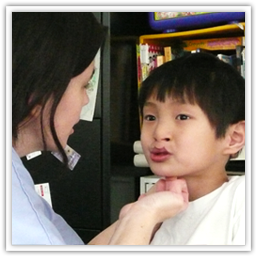School may be out soon, but speech therapy doesn’t have to end. Instead of lamenting the (temporary) loss of your child’s school speech-language pathologist (SLP), use summer break as an opportunity to advance your child’s communication skills. If your child qualifies for extended school year (ESY) services, he will still be able to work with his school SLP. There are also plenty of opportunities to turn fun activities into learning experiences.
Tips for Parenting an Asperger’s Child
Speech Therapy TechniquesIn 1944, pediatrician Hans Asperger noted the classic behavior patterns of children with Asperger’s syndrome. These children have different patterns of speech, impaired social skills, and difficulty displaying empathy. However, as one mom of an autistic child points out, this developmental disorder does not mean that the child has a diminished intelligence. A speech-language pathologist (SLP) can help your Asperger’s child develop his speech and language skills. Talk to the SLP about activities that you can do at home to help your child flourish and avoid social isolation.
Parenting Teens with Asperger’s
Speech Therapy TechniquesThe Challenges of Asperger’s
Asperger’s syndrome is a developmental disorder that is categorized as an autism spectrum disorder (ASD). While getting help for your child early on in his life will help him cope with the typical signs and symptoms of Asperger’s, some issues will continue to persist as he grows into young adulthood. Teens tend to identify themselves as part of their group of friends. But a teen with Asperger’s can have trouble relating to other people. Other kids may not empathize with your child’s struggles, and this may cause him to feel isolated, frustrated, and emotionally drained. Your teenager may feel particularly overwhelmed as he begins to consider dating.
Coping with Traumatic Brain Injuries
Speech Therapy TechniquesChildren with a traumatic brain injury (TBI) typically experience a wide range of symptoms that can evolve over time. Some of the speech and language issues that your child might have trouble with include finding the right words, producing the correct sounds, and organizing information. Work with your child’s recovery team to develop a treatment plan and learn about coping methods. Your child’s recovery team will likely include his doctor, neuropsychologist, occupational therapist, and speech-language pathologist (SLP).
Apps for Spanish-Speaking Children
Speech Therapy TechniquesMost children love electronics. Even if your child doesn’t much care for flashcards during speech therapy, there’s a good chance he will give it a try if it’s on an app for an iPad or iPhone. While the majority of speech therapy apps are geared toward an English-speaking audience, there are a few gems for Spanish-speaking children as well.
Evaluating Speech After Traumatic Brain Injuries
Speech Therapy TechniquesA traumatic brain injury (TBI) typically results in a wide range of physical and cognitive effects. Recovery is gradual and many children only partially recover from their injuries. Before developing his treatment plan, your child’s speech-language pathologist (SLP) will conduct a thorough evaluation of the changes in his speech and language skills. She will also determine the impact of those changes on his day-to-day routine. The SLP will use a formal and an informal assessment to evaluate your child.
More Great Articulation Apps
Speech Therapy TechniquesAs your child grows, he will likely learn to speak in complete sentences, control the tone of his voice, and articulate words clearly. If you suspect your child is struggling with proper articulation or he has a speech delay or disorder, bring him to a speech-language pathologist (SLP) for an evaluation. A speech therapist can help your child with an array of communication issues, including articulation. You can also use speech therapy activities at home to encourage his progress, including using apps that were designed specifically to teach articulation.
Using Social Stories in Speech Therapy
Speech Therapy TechniquesWhat Is It?
A social story is exactly what it sounds like: a brief, simple story designed to teach children about social situations and appropriate responses. Social stories were originally developed in 1991 by Carol Gray of The Gray Center. Gray had been a consultant to students with autism spectrum disorder (ASD). Social stories were originally intended solely for use by those with ASD; however, they can also be helpful for improving communication in non-autistic children.
An Interview with Deborah Luetkenhoelter, MA,CCC-SLP
Speech Therapy TechniquesDeborah Luetkenhoelter is a certified speech-language pathologist (SLP) who specializes in working with children and adults with autism spectrum disorder (ASD). Deborah works with schools and families in a collaborative environment to address communication needs. Today, she’s sharing her expert knowledge regarding the challenges that autistic children frequently encounter, as well as some of the evaluation measures that she uses in her practice. Deborah emphasizes that it is critical to improve communication, whether verbal or nonverbal, in children with autism in order to reduce inappropriate behaviors.
Speech Difficulties in Down Syndrome
Speech Therapy TechniquesDown syndrome (DS) is an incurable genetic disorder that has a profound impact upon a person’s physical, mental, and social development. Children with DS have anatomical and physiological differences in the mouth and throat region that affect feeding, swallowing, and oral motor skills. They also often have hypotonia, or poor muscle tone in the mouth area. The symptoms of Down syndrome, such as speech and language difficulties range from mild to severe from patient to patient.









